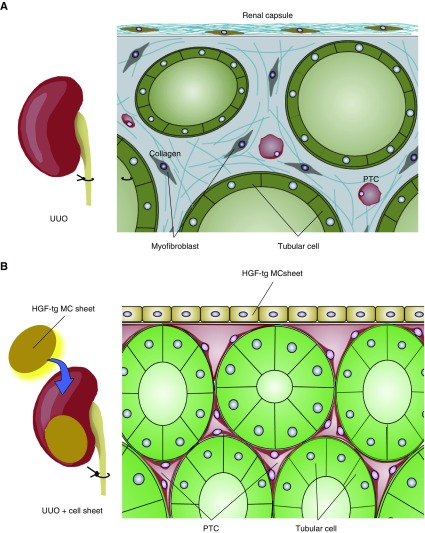Figure 9.
Hepatocyte growth factor transgenic (HGF-tg) mesothelial cell (MC) sheet ameliorationed of damage to unilateral ureteral obstruction (UUO)–treated kidneys. (A) In UUO-treated kidney, peritubular capilaries (PTCs) reduced and RBF decreased. Myofibroblasts and collagen increased, and renal fibrosis progressed. (B) Two HGF-tg MC sheets were transplanted on the surface of the UUO-treated kidney. The transplanted cell sheets can adhere and survive on the surface of the kidney for a long duration. The HGF-tg MC sheets produce hepatocyte growth factor (HGF) at the site in contact with the kidney and activate the HGF receptor in the kidney. HGF prevents the reduction of peritubular capillaries (PTCs), maintains renal blood flow, and effectively suppresses the induction of myofibroblast progression and collagen synthesis for a long duration. As a result, transplantation of HGF-tg MC sheets can inhibit the progression of renal fibrosis.

